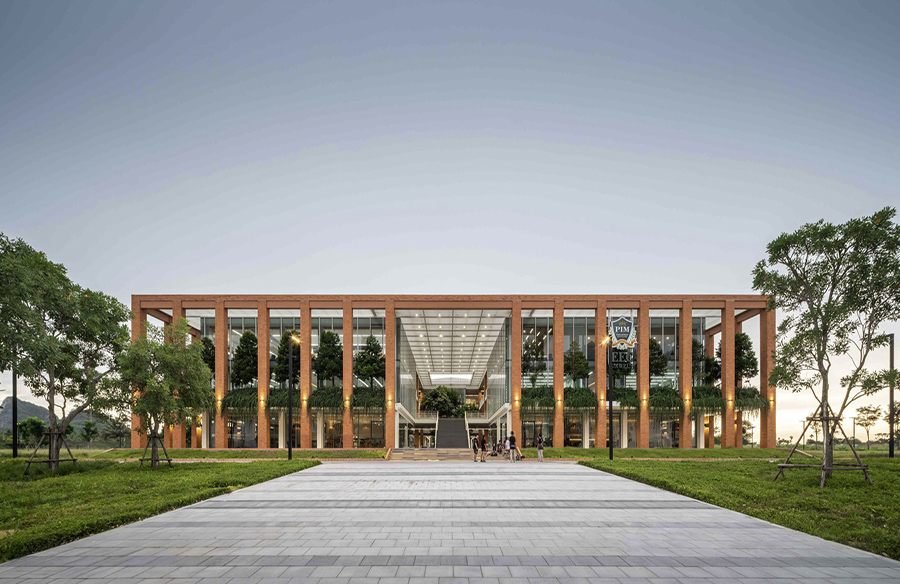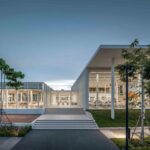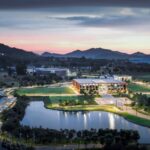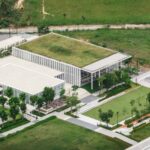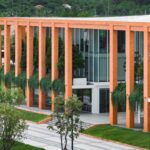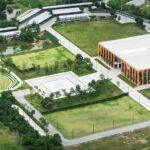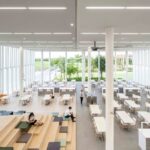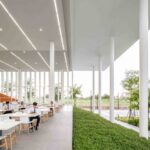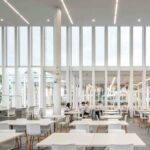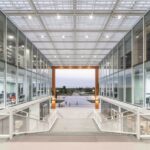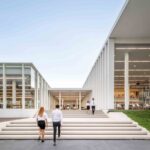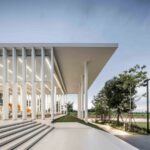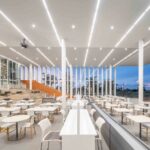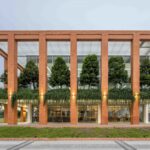Panyapiwat Institute of Management envisions its campus expansion as a pivotal center to support the burgeoning needs of the industrial sector in the Eastern Special Development Zone (EEC). With plans to accommodate a sizable student population and provisions for future growth, Architects 49 faced the challenge of designing a versatile campus layout adaptable to diverse functions and activities.
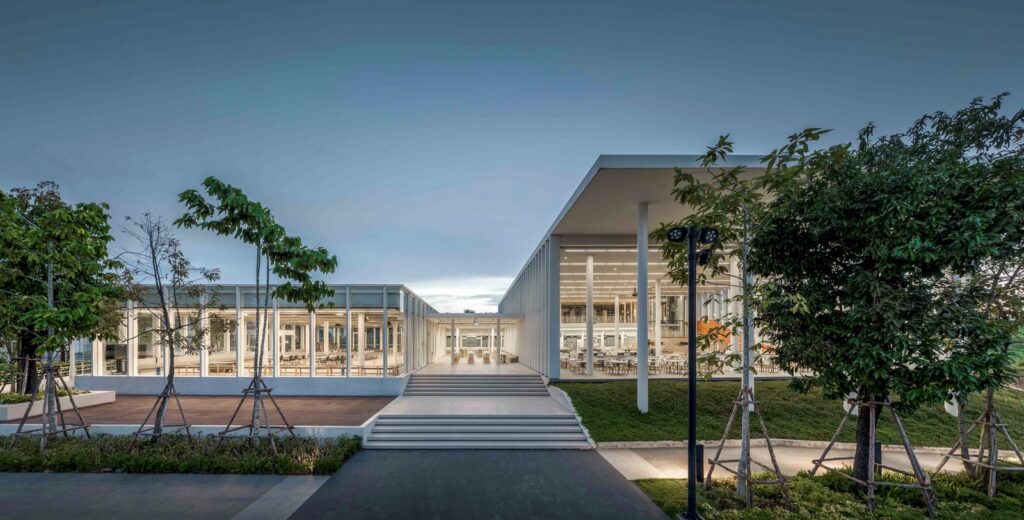
Design Concept: Harmonizing with Nature
The design philosophy, encapsulated in the concept of “Back to Basics | Learning with Nature | Knowledge Is Everywhere,” seeks to foster experiential learning in harmony with the natural environment. By integrating nature into the campus fabric, the aim is to cultivate collaborative spaces where students and educators can exchange ideas and innovate beyond traditional classroom settings.
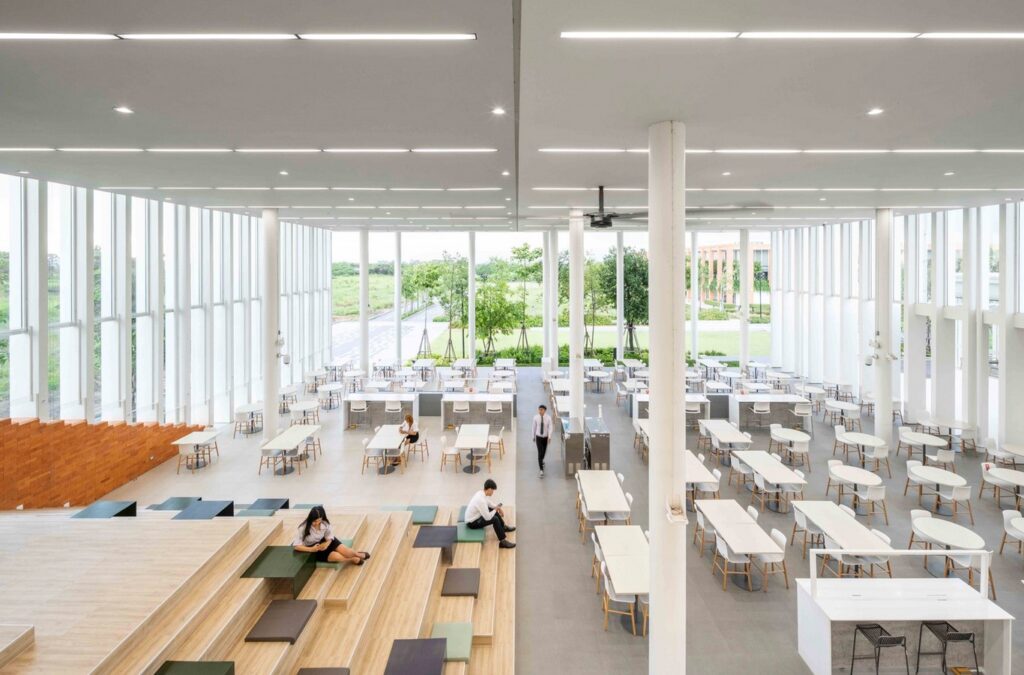
Sustainable Architecture: Passive Design Principles
From the outset, the project emphasizes passive design principles, permeating every aspect from master planning to architectural detailing, mechanical and electrical systems, and landscape architecture. By strategically orienting buildings and incorporating green spaces, the design mitigates heat buildup and minimizes reliance on air conditioning. Features like green roofs and rainwater harvesting further contribute to environmental sustainability.
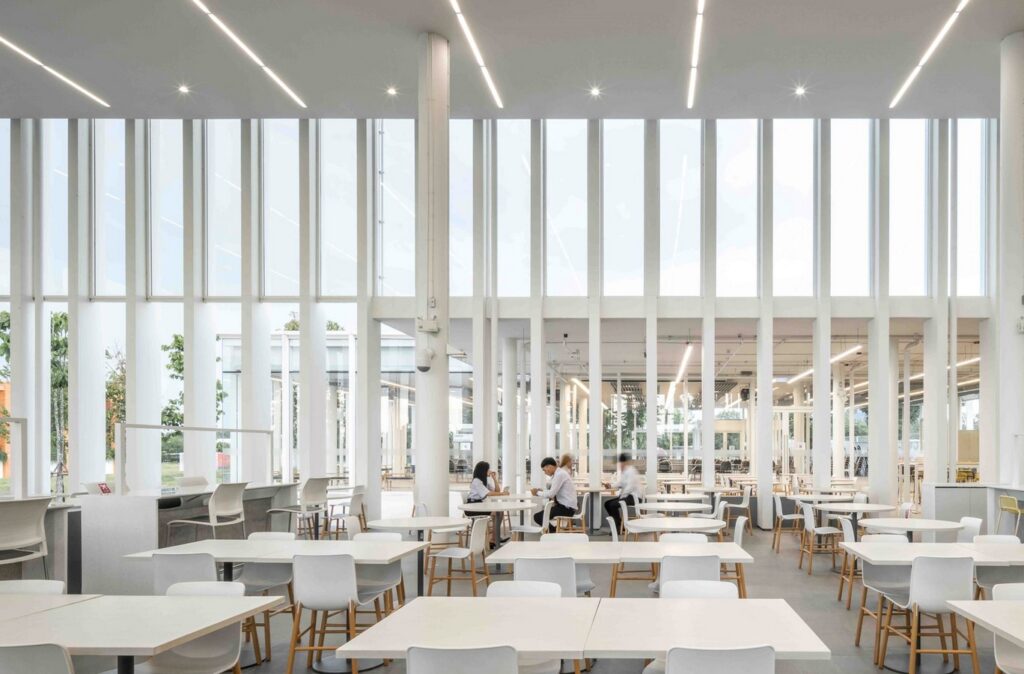
Promoting Energy Conservation: User Awareness
The campus layout encourages energy conservation through thoughtful design choices. Initiatives such as prioritizing bicycle lanes and optimizing parking spaces promote eco-friendly commuting options. Additionally, the architectural palette favors natural materials and limits the use of chemicals, exemplifying the project’s commitment to environmental stewardship.
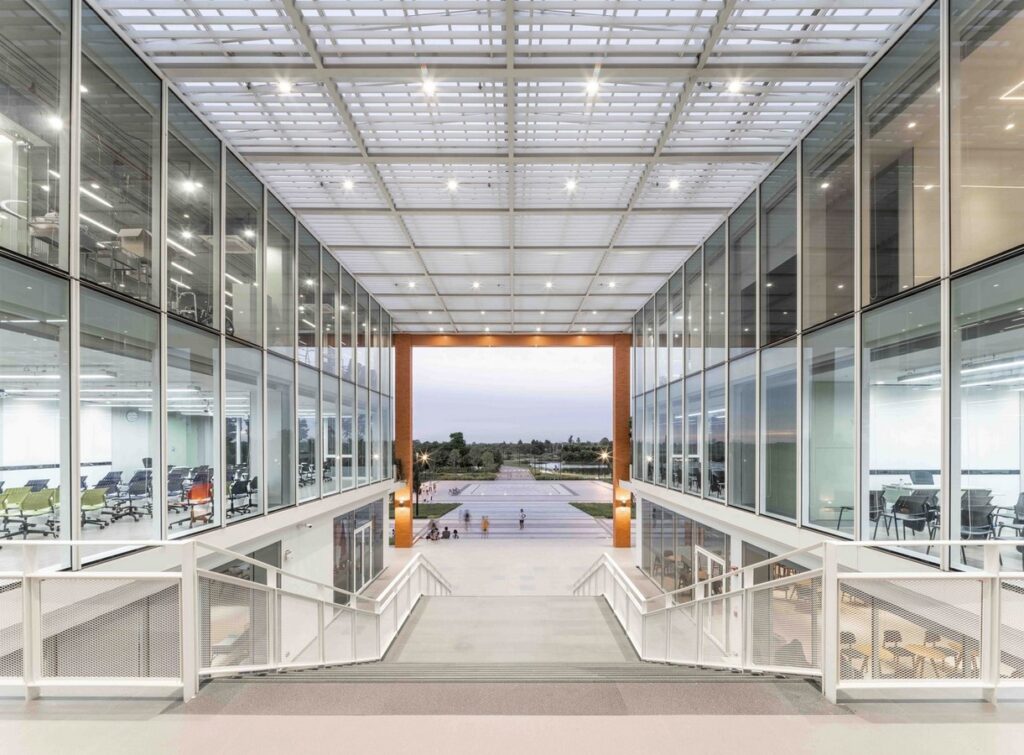
Landscape Design: Native Plant Integration
Inspired by Dr. Miyawaki’s natural forest planting method, the landscape design prioritizes native plant species to minimize maintenance and promote organic growth. By cultivating large trees from seedlings, the campus fosters a biodiverse ecosystem that aligns with long-term sustainability goals.
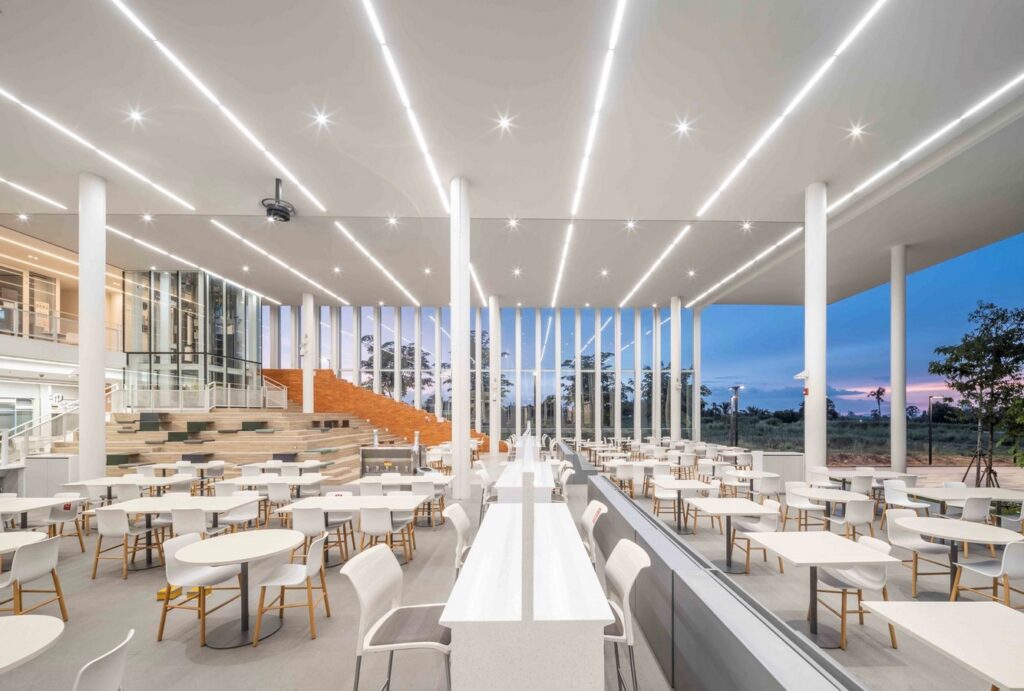
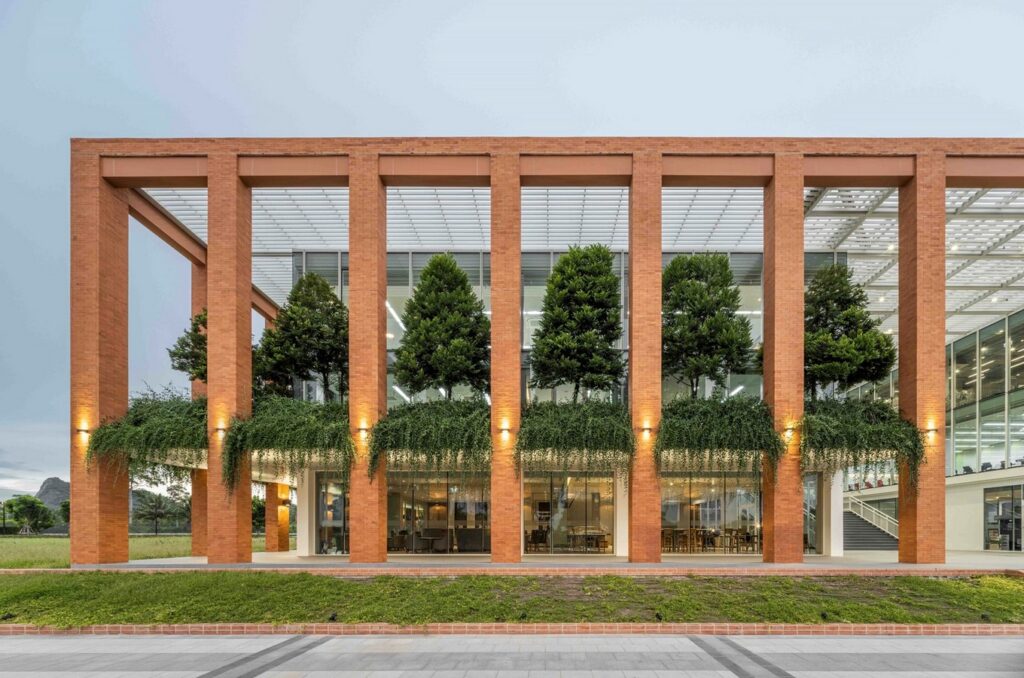
Conclusion: A Blueprint for Sustainable Education
The Panyapiwat Institute of Management EEC Campus embodies a holistic approach to sustainable education infrastructure. By marrying passive design strategies, environmental consciousness, and experiential learning principles, the campus sets a precedent for future educational developments committed to harmonizing with nature and fostering innovation.


